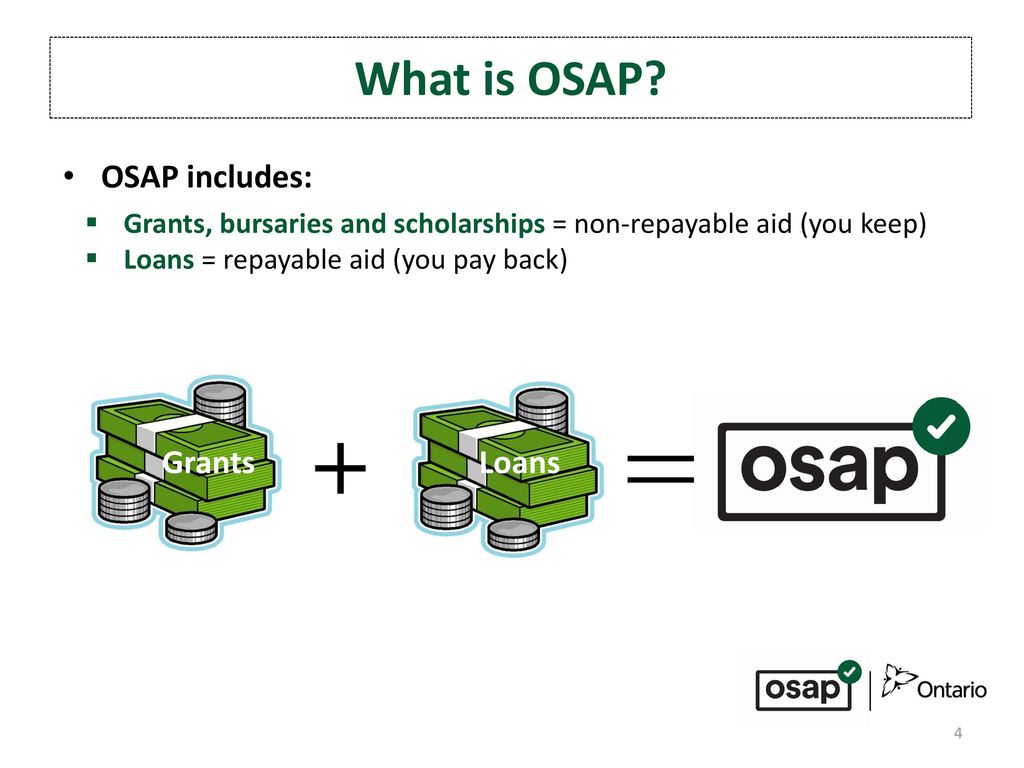1. What is an OSAP Overpayment?
-
Changes in your course load: Maybe you started the semester full-time but dropped a course or two along the way. If OSAP gave you money based on that full-time status, you might now have more than you qualify for. To be considered a full-time student, you must have a course load of at least 80% (4/5).
-
Inaccurate income reporting: Did you forget to mention that part-time job or a scholarship when you applied? If OSAP thinks you need more help than you actually do, they might overpay you.All income is verified with Canada Revenue Agency (CRA). If there’s a discrepancy between the income on file at OSAP and the information received from CRA, we will use the income from CRA to reassess your application. That means that the amount of your funding could change. If there is a significant variance, you could be restricted from getting OSAP.
-
Administrative slip-ups: Sometimes, the system or the people behind it make a mistake. It’s rare, but it happens. Every amount you get in mistake will be asked to pay back or it will be deducted from your grants or next OSAP payment.
2. How to Check If You Owe OSAP Money
-
Log into your OSAP account online: Head to the OSAP website, sign in, and take a peek at your funding details. If there’s an overpayment, it’ll be flagged there, clear as day.
-
Reach out to your financial aid office: Your school’s financial aid team is your go-to crew for all things OSAP. Give them a call or pop by—they can break down your status and let you know if you owe anything.
-
Watch for official notices: The Ministry of Colleges and Universities doesn’t leave you guessing. If you’ve been overpaid, they’ll send you a heads-up via email or snail mail. So, don’t let those “OSAP” subject lines go unread!
3. Consequences of Not Repaying an OSAP Overpayment
-
No more OSAP for you: If you don’t clear the overpayment, you could be cut off from future OSAP funding. That means no help for next semester until you settle up.
-
Credit score trouble: Unpaid overpayments can get reported to credit bureaus, which isn’t great news for your credit score. A dinged credit score can make it tougher to rent an apartment, get a car loan, or even snag a credit card later on.
-
Legal headaches (worst-case scenario): In rare cases, if you really dodge repayment, it could lead to legal action. This is super unlikely, but it’s still a possibility.
As stated above, overpayments can result from a misreporting of income. If the Ministry feels that a student has seriously misreported their income, then income variance restrictions of 3 to 5 years will be issued. Sometimes a variance restriction can be appealed. Students should make an appointment with a Financial Aid Counsellor to review their situation. It is very important that students report their income, and any changes, accurately during the study term.

4. How to Appeal an OSAP Overpayment Decision
-
Talk to your financial aid office: Start by chatting with the pros at your school. They’ll explain why the overpayment was flagged and whether you’ve got a solid case for an appeal. In most cases, if you provide valid proof and documentation that you were eligible for the payments, you might win the appeal case.
-
Gather your evidence: You’ll need proof to back up your story. Think course enrollment records, pay stubs, or anything else that shows OSAP got it wrong like Doctors note for disability, proof of dependability(No support from Family) .
-
File your appeal: Your financial aid office will guide you on how to submit everything. There’s a deadline—usually 40 days before your study period ends—so don’t sleep on it!
-
Wait it out: Once you’ve submitted, it can take 4-8 weeks or longer for a decision, especially during busy seasons like the start of a semester.
5. Strategies to Avoid OSAP Overpayment
-
Be honest about your income: When you apply for OSAP, list every dime you’re earning—part-time gigs, scholarships, even that birthday cash from Grandma if it counts. Accuracy keeps the numbers straight.
-
Track your course load: Thinking of dropping a class? Check with your financial aid office first to see how it’ll tweak your OSAP. A quick heads-up can save you a headache.
-
Stay in the know: OSAP rules aren’t set in stone—they can shift. Peek at the OSAP website now and then, or ask your financial aid office what’s new.
-
Lean on your financial aid team: Got a question about your application or funding? Don’t guess—ask! Your financial aid office is there to keep you on track.

